"The Twilight Zone" (2019): Episode Nine Review
 Chris O'Dowd in "The Blue Scorpion."[/caption]
Chris O'Dowd in "The Blue Scorpion."[/caption]
[Spoilers for "The Blue Scorpion" follow.]
At midnight this past Thursday, the comedy music troupe The Lonely Island dropped a visual rap album (think Beyonce's Lemonade) called The Unauthorized Bash Brothers Experience. The "visual poem," as they refer to it, centers on the eponymous Bash Brothers Mark McGuire (Akiva Schaffer) and Jose Canseco (Andy Samberg) and their use of steroids to propel their skill as Major League Baseball players. In the song "Focused AF," Canseco engages in a question-and-answer breakdown with McGuire that reveals their true motivations for 'roiding out: "Where is the limit? / There are no limits. / And what is the goal? / To make dad love me. / To make dad love me. / [In unison:] To make dad finally love me!" One of the album's latter songs "Daddy" is directed to both of the athlete's dads: "Got much bigger, faster, stronger, Dad / Hit so long / But you always want it longer, Dad / 'But therapy's for losers, little boy / therapy's for losers.'" Oddly, the incredibly hilarious Bash Brothers is a much more successful portrait of obsession and daddy issues than The Twilight Zone's newest episode "The Blue Scorpion." But instead of focusing on steroids as a coping mechanism, the addiction that controls Jeff Storck's (Chris O'Dowd) life is a gun. Jeff is at the lowest point in his life, staying with his dad while he goes through a divorce that he can barely afford. When he returns home one night, though, Jeff finds that his father has committed suicide. During the police investigation Jeff is presented with a gun and asked to confirm whether or not it was his dad's gun. Jeff is confused at the sight, as his dad was a "hippie" that loathed guns his entire life. The gun, gold-plated and stamped with rose-pedal imprints with an ivory grip featuring a blue scorpion, soon entrances Jeff. Once he sees the gun, he grows more paranoid and distrusting of the world. Every man he runs into is named Jeff, and even one of his students reports a feeling that the objects in her dorm are communicating with her. The gun itself (named The Blue Scorpion), Jeff finds out from a gun shop owner named Bob Jeff, was once owned by Che Guevara and has only been owned by six people before Jeff. "The legend is," Bob says, "you don't find [The Blue Scorpion], it finds you." Any bullet that Jeff loads into The Blue Scorpion's cartridge is engraved with his name. As the gun radiates some sort of mystic energy, Jeff begins to believe that he cannot trust anyone. All he can trust is The Blue Scorpion which came for him. [caption id="attachment_262372" align="alignleft" width="300"] Jeff pointing at Jeff in "The Blue Scorpion."[/caption]
"The Blue Scorpion" seems to be leading its viewers to see Jeff's sanity as crumbling due to the gun. Given the leftist politics of the show so far, it's expected that the episode is going to condemn guns and advocate for either a ban on guns or further restrictions. And I think the episode believes it is doing that. Peele's closing narration bemoans human tendency to treasure objects more than human life, which is a not so subtle message that the U.S. is more caring about the rights of guns than people who die from them. But the ending of the episode's plot shows Jeff using the gun to kill a neighborhood house-invader after the invader tries to break into Jeff's car. Once the invader is killed, Jeff is praised in the newspapers as a hero and is granted a position as the Chair of his university's Anthropology Department. Everything works out perfectly for him thanks to the gun, but Peele's narration claims that the gun has led to great tragedy.
But where is this tragedy? My best guess is that "The Blue Scorpion" is saying that instead of everybody focusing on the death of the invader and mourning the loss of life, they are celebrating his demise at the hand of a gun. I could buy that if the show treated the invader with any amount of sympathy. He dies and the cops are like, "Oh, great job killing this dude," and that is as much time as is spent on him. There is a large incongruity between Jeff's ending as a character and Peele's narration that I cannot square. Even though the episode claims to be anti-gun its plot delivers an oddly pro-gun story.
The Lonely Island's Bash Brothers toes a similar line as it consistently refers to the players' use of performance enhancing drugs. But McGuire and Canseco are portrayed as broken buffoons who retreat to baseball as a way to, albeit unhealthily, deal with their fathers' rejection of them. While the piece ends with the Oakland Athletics winning the World Series, we know that their use of steroids is not being promoted as a means for success. "The Blue Scorpion" tries to do the same thing – showing Jeff's rise and success because his obsession with the gun but not endorsing the gun as a path to success – but it fails tremendously.
If anything distinguishes "The Blue Scorpion" from the other political episodes of The Twilight Zone, it is that it drops the ball so hard in its messaging that it ends up romanticizing the very thing it means to attack. Its embellishment of the gun with mystical properties makes the gun come off like a well-meaning genie rather than the deceptive demon it is meant to be depicted as. It is hard to tackle to the anti-gun argument of the episode because it fails so hard at making that argument. The previous episodes of this show have been bad, but they have at least had a clear message; "The Blue Scorpion" cannot even make it to that low-bar.
Episodes of "The Twilight Zone" are available exclusively on CBS All Access. For more of Adrian's piping hot-takes and foolish opinions on pop culture, follow him on Twitter @APBryant32.
Jeff pointing at Jeff in "The Blue Scorpion."[/caption]
"The Blue Scorpion" seems to be leading its viewers to see Jeff's sanity as crumbling due to the gun. Given the leftist politics of the show so far, it's expected that the episode is going to condemn guns and advocate for either a ban on guns or further restrictions. And I think the episode believes it is doing that. Peele's closing narration bemoans human tendency to treasure objects more than human life, which is a not so subtle message that the U.S. is more caring about the rights of guns than people who die from them. But the ending of the episode's plot shows Jeff using the gun to kill a neighborhood house-invader after the invader tries to break into Jeff's car. Once the invader is killed, Jeff is praised in the newspapers as a hero and is granted a position as the Chair of his university's Anthropology Department. Everything works out perfectly for him thanks to the gun, but Peele's narration claims that the gun has led to great tragedy.
But where is this tragedy? My best guess is that "The Blue Scorpion" is saying that instead of everybody focusing on the death of the invader and mourning the loss of life, they are celebrating his demise at the hand of a gun. I could buy that if the show treated the invader with any amount of sympathy. He dies and the cops are like, "Oh, great job killing this dude," and that is as much time as is spent on him. There is a large incongruity between Jeff's ending as a character and Peele's narration that I cannot square. Even though the episode claims to be anti-gun its plot delivers an oddly pro-gun story.
The Lonely Island's Bash Brothers toes a similar line as it consistently refers to the players' use of performance enhancing drugs. But McGuire and Canseco are portrayed as broken buffoons who retreat to baseball as a way to, albeit unhealthily, deal with their fathers' rejection of them. While the piece ends with the Oakland Athletics winning the World Series, we know that their use of steroids is not being promoted as a means for success. "The Blue Scorpion" tries to do the same thing – showing Jeff's rise and success because his obsession with the gun but not endorsing the gun as a path to success – but it fails tremendously.
If anything distinguishes "The Blue Scorpion" from the other political episodes of The Twilight Zone, it is that it drops the ball so hard in its messaging that it ends up romanticizing the very thing it means to attack. Its embellishment of the gun with mystical properties makes the gun come off like a well-meaning genie rather than the deceptive demon it is meant to be depicted as. It is hard to tackle to the anti-gun argument of the episode because it fails so hard at making that argument. The previous episodes of this show have been bad, but they have at least had a clear message; "The Blue Scorpion" cannot even make it to that low-bar.
Episodes of "The Twilight Zone" are available exclusively on CBS All Access. For more of Adrian's piping hot-takes and foolish opinions on pop culture, follow him on Twitter @APBryant32. 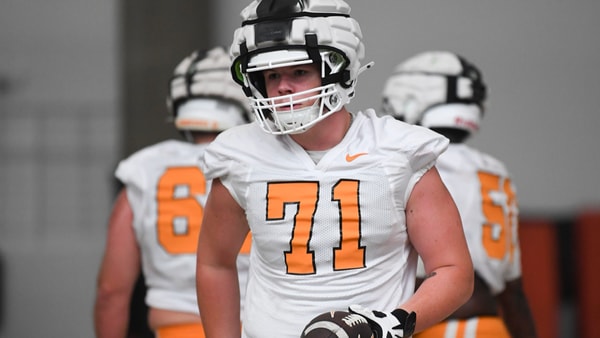
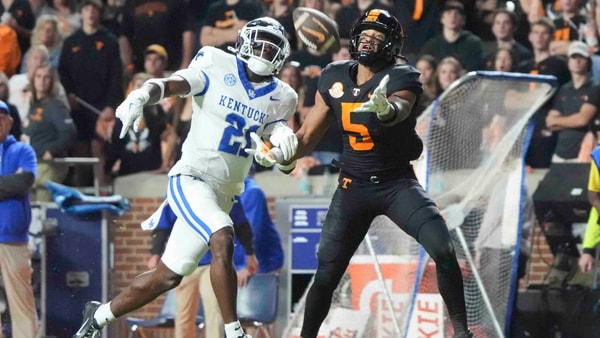

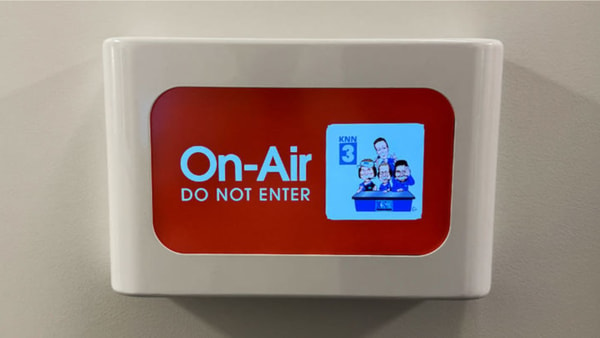
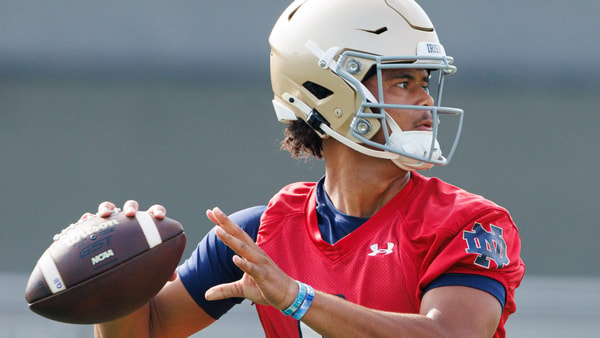
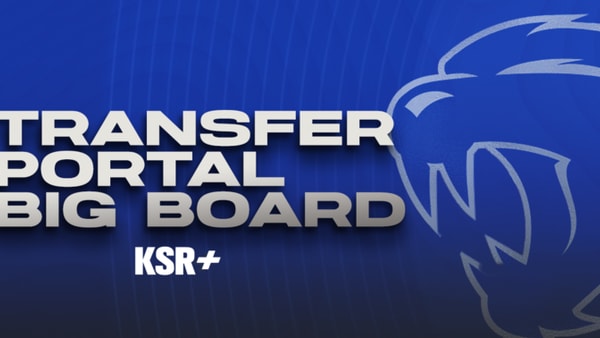
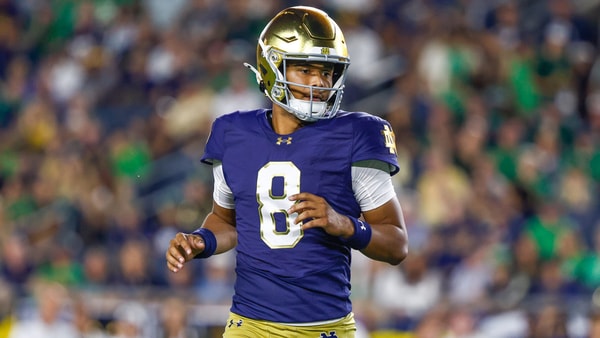

Discuss This Article
Comments have moved.
Join the conversation and talk about this article and all things Kentucky Sports in the new KSR Message Board.
KSBoard